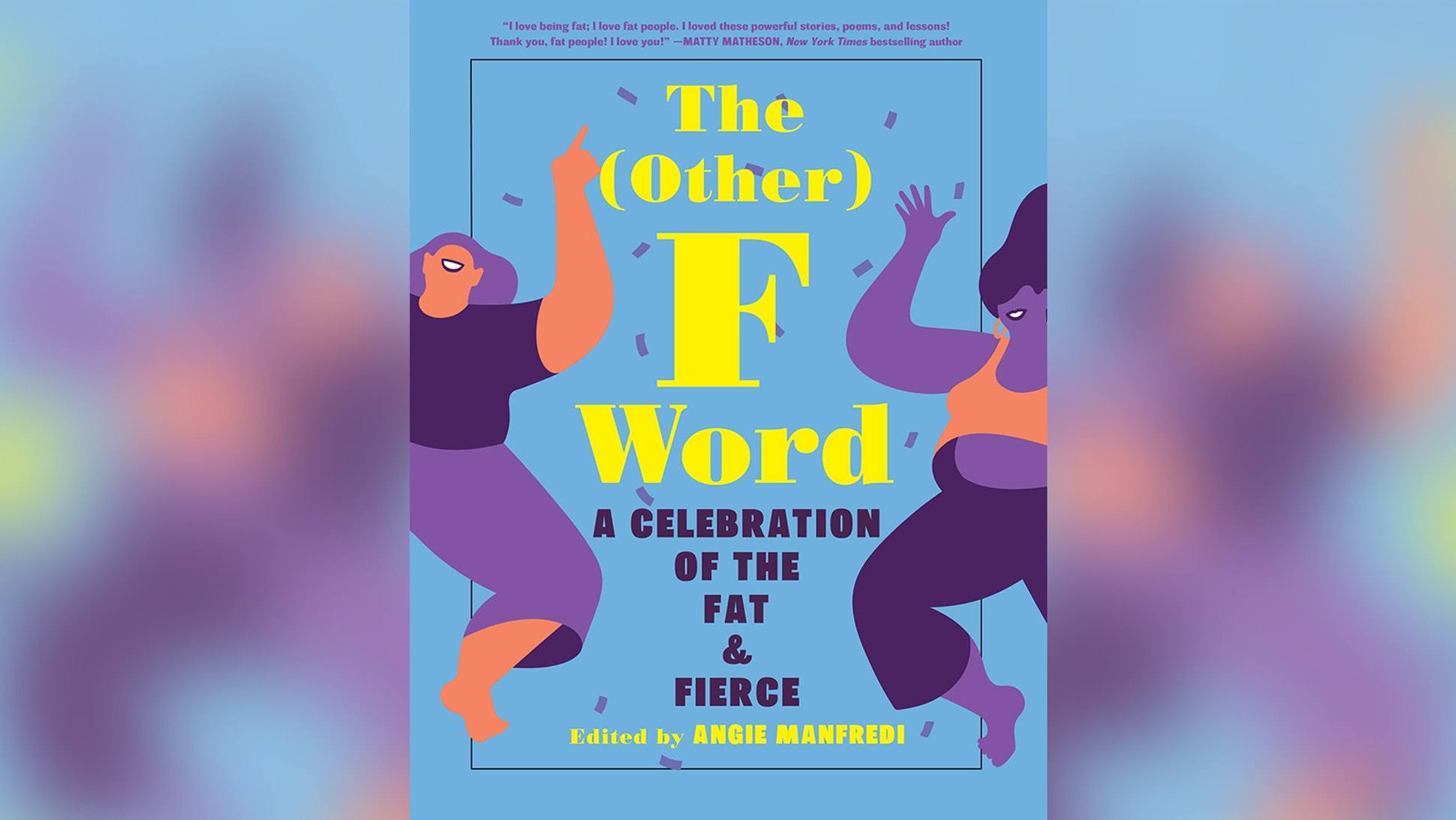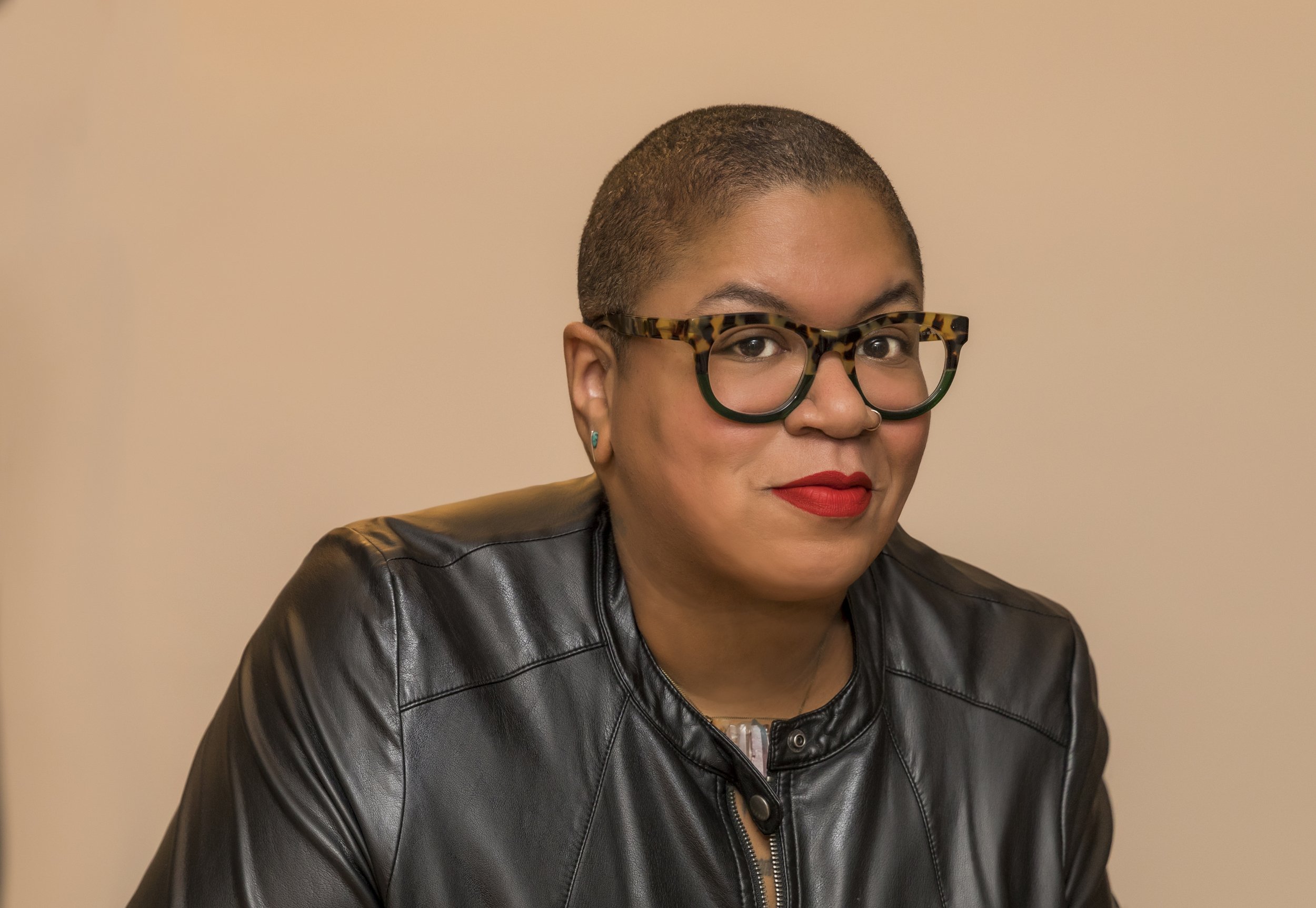Reclamation of the word “fat” is hardly new, yet it can often feel lately that pop culture is breaking into new territory with a newfound, proud presence. With each new hashtag or TV series like Shrill, fat acceptance — a social movement changing anti-fat bias in our attitudes and cultural dialogue — reaches a wider audience and cements its message in new, bolder ways on its path to more a mainstream embrace. The (Other) F Word: A Celebration of the Fat & Fierce is the newest addition to the campaign of dignity, love, and respect for diverse bodies coming from Amulet Books this September. And as its title suggests, it continues to take the “f” word from its former place of insult, akin to embarrassment or even vulgarity, to a place of acceptance, pride, and celebration of our bodies.
The result is an anthology that welcomes its newcomers to the movement, full of message directed towards teens and young adults: messages of commiseration and validation, offering to the altar of shared experience, words of motivation to those in the process of learning to love their bodies for the first time. As a thin man reading this book I found myself feeling as an outsider eavesdropping in support, cheering quietly with each story, each reclamation of power, but quietly, in hushed cheers, as not to draw attention to myself. As stories unfolded I became a guest in my own imagination, fully aware of what I felt, perhaps falsely, was an awkward sight: me on the downtown A train reading a book not meant for me. It wasn’t long though until I reveled at these writers’ personal experiences, many of which inspired, shocked, and infuriated me, as a reminder that something doesn’t have to be made for me in order to learn from it.
Edited by Angie Manfredi (you may know her from her blog Fat Girl, Reading), The (Other) F Word compiles over two dozen writers as something of an invitation to the fat community for those who never knew such a robust community existed. Many stories tell of these writers’ own first discovery of the fat acceptance community, expressing the feelings of empowerment and validation that come from seeing other fat people feeling powerful and full of pride in who they are and the bodies they have. Essays from Black writers include a powerful short essay titled “The Story of My Body” by Renée Watson about the multitude of experiences through the lens of being fat, Black, and a woman, to Adrianne Russell’s “From Your Fat Future” as a message of hope to her seventeen-year old self, to Samantha Irby’s laughter-inducing “Reasons to Hang In There” that includes sections like “Seeing Your Enemies Fail” and “Plus-Sized Clothing is Marginally Better Now!!!”
A staple of the books essays, and my personal favorite, take the form of writers’ letters to their former selves, like the person they were at sixteen, as in my favorite essay called “Write Something Fat” written by Sarah Hollowell. The spirit of Hollowell’s essay about representation and the internalized myth that fat people should be hidden if not used as the butt of jokes is later echoed in the wonderful “To All the Pizzas I’ve Loved Before,” a play on the Netflix teen romance phenomenon. In response to the hurt of not seeing yourself represented, or only being represented negatively, both essays result in their searching for, finding, and creating the type of representation they wish they’d had more readily in the past. “Your body is not a good body because someone else is attracted to it,” writer Laina Spencer shares. “Your body is a good body because it’s a beautiful, amazing fat body.”
Other types are stand-out-loud shouts of pride and confidence, in what I can best describe as motivational, living examples of how one can choose to live confidently as a fat person, my favorite of which is called “The 5 Things You Need to Start Your Very Own Rad Fat Babe Revolution” by Virgie Tovar. Advice includes “wear what you want” and “have high standards for who gets to be in your life,” as reminders — or maybe proclamations heard for the first time — that anyone can choose to have the autonomy and enforce the standards that had been afforded to a narrow group of thin people.
If you’re a fan of such anthologies as I am, you will find the charm in different writers perspectives on the same subject (one of my favorites is Goodbye to All That: Writers on Loving and Leaving New York). Depending on your pacing, The (Other) F Word might sometimes land in the pitfall almost inherent in an anthology of its kind, a reader exhaustion that comes from binging a book that serves better in doses, a type of devotional to remind you of its message in doses to keep from feeling too redundant. Still, I found the mix of experiences, listicles, nerdy artwork, and wide diversity of its writers more than enough to keep me happily reading and learning.
THE (OTHER) F WORD is the first YA anthology about fat acceptance. It’s 30 fat voices creating a new way to love and celebrate your body for teens and anyone new to the fat acceptance movement. Get #FatFierceFearless! Out 9/24/18!
Pre-Order: https://t.co/btsXKdnz7s pic.twitter.com/70ExdT2HpY— Angie Manfredi (@misskubelik) May 24, 2019
Read our site’s other literature reviews on our Literature tag.
Want to get Black Nerd Problems updates sent directly to you? Sign up here!
Follow us on Twitter, Facebook and Instagram.




Show Comments